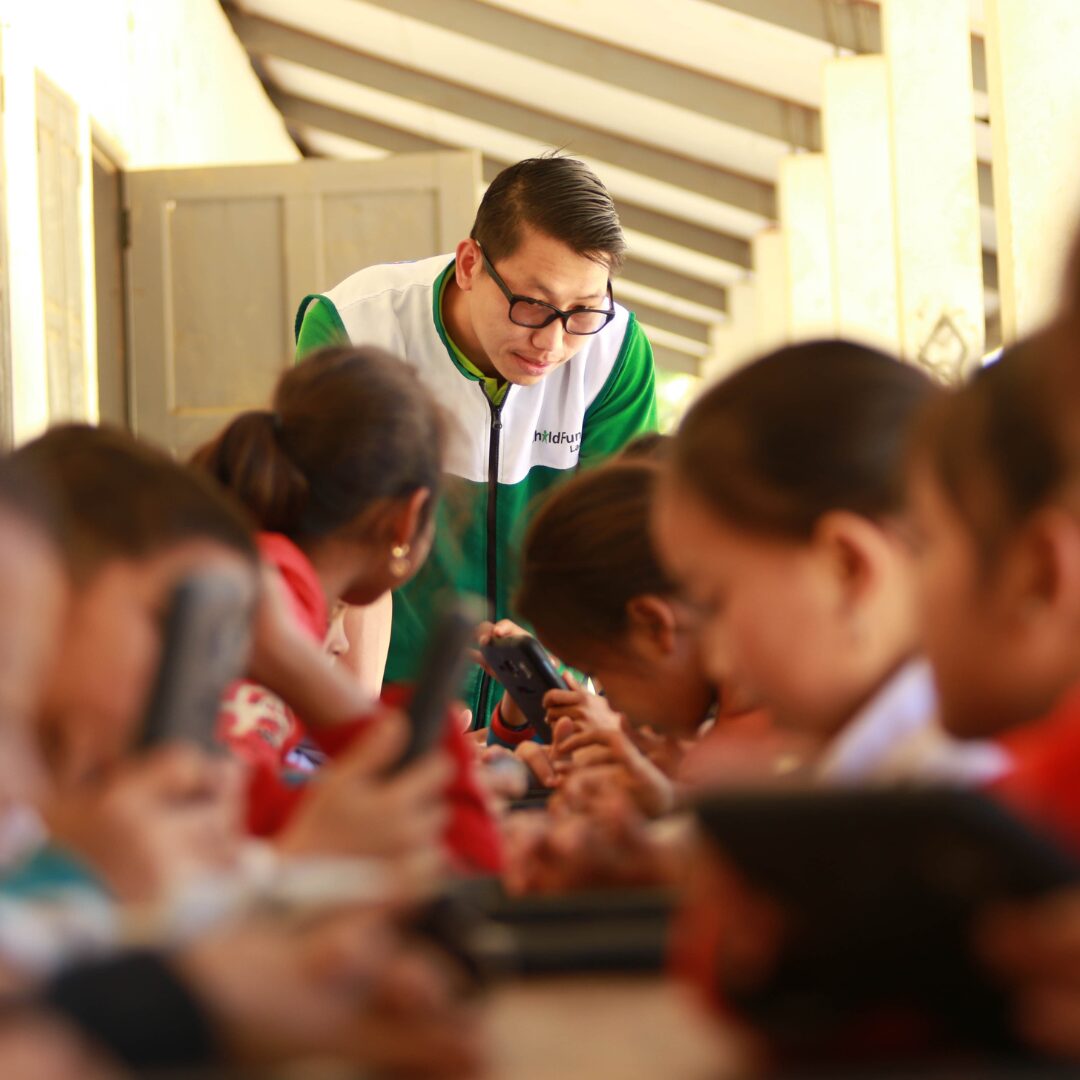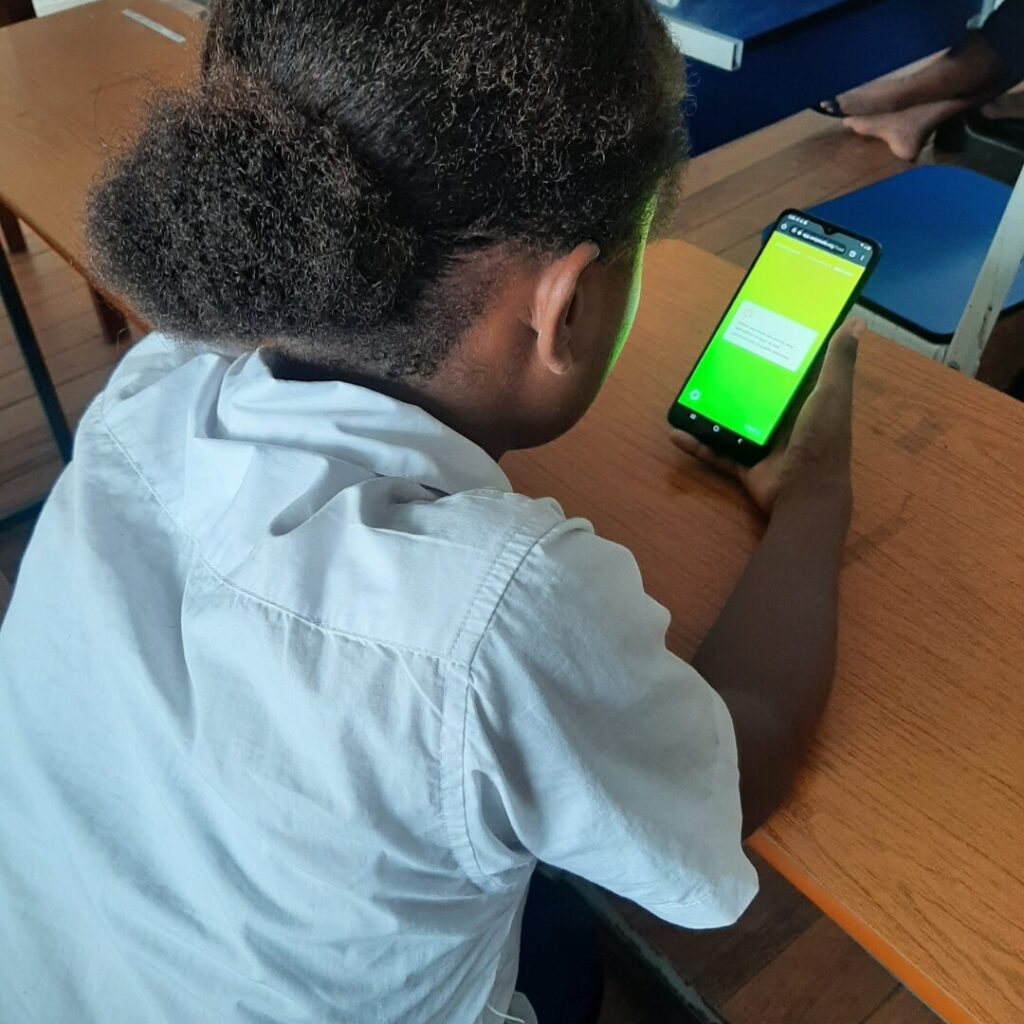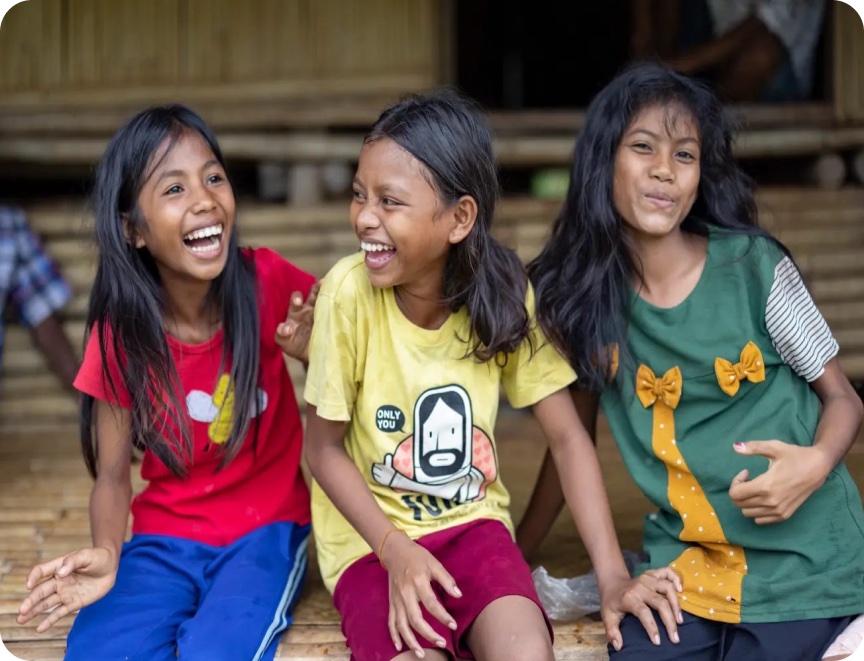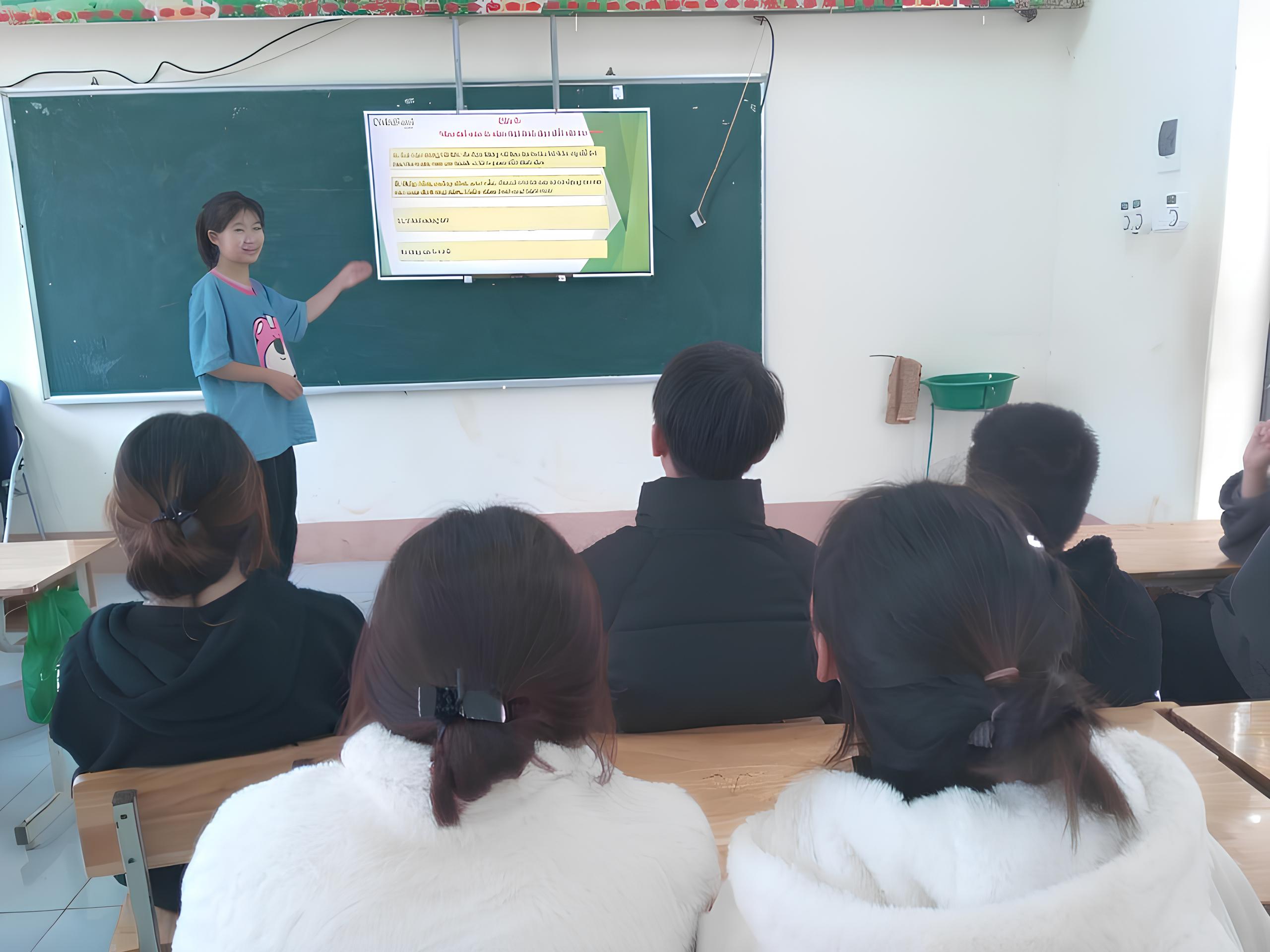Cyberbullying isn’t confined to one specific place or community – it’s happening across Australia, around the world and in the digital spaces where kids spend their time. The rise of social media, gaming and messaging apps has made the online world more connected than ever before, but it’s also introduced new risks that many young people are unprepared for.
Kids today are facing a form of bullying that doesn’t stop when the school bell rings or when they leave the playground. It follows them home, relentlessly showing up on their screens, their phones, even when they try to disconnect.
At ChildFund Australia, we are determined to tackle this global issue head-on through Swipe Safe, our fun and easy face-to-face training program and app. We first launched Swipe Safe in Vietnam back in 2017, and since then we’ve reached 60,000 children and expanded to five countries across the Asia-Pacific, including Cambodia, Timor-Leste, the Solomon Islands, Fiji and Indonesia.
Our mission is simple but crucial: to protect children both online and offline, giving them the skills and confidence they need to stay safe in an increasingly digital world. Our program is empowering children, families and communities to fight back against cyberbullying and online threats. But it’s not just about keeping children safe – it’s about equipping them to navigate the digital world with kindness, respect and safety.
Let’s make a change together. Support ChildFund Australia’s mission to prevent cyberbullying and create a safer online environment for kids everywhere.
What is cyberbulling?
Cyberbullying is a form of bullying that takes place on digital platforms – social media, messaging apps, online gaming and beyond. Unlike traditional bullying, which happens in physical locations like schools, cyberbullying has no boundaries. It can happen anytime, anywhere – even when kids are supposed to be relaxing at home.
In many ways, the internet has become a second home for children, and sadly, for many, it’s also where they experience bullying. The anonymous nature of cyberbullying allows bullies to hide behind screens and fake profiles, making it easier for them to say things they would never say in person. Worse still, cyberbullying can reach a wide audience almost instantly, amplifying the harm. And with digital devices always within reach, the bullying never stops – it continues relentlessly, long after school hours, keeping kids on edge 24/7.
Traditional bullying vs. cyberbullying
While both traditional bullying and cyberbullying are damaging, the digital version introduces some serious new challenges. Here are some of the key differences:
- Constant Exposure: Physical bullying stops when the victim leaves school, but cyberbullying follows them everywhere. It can resurface at night, on weekends, and even on holidays, relentlessly keeping the victim in a constant state of distress.
- Anonymity: Cyberbullying often allows bullies to hide behind a screen. This sense of being anonymous can embolden individuals to say hurtful things they wouldn’t say in person.
- Wider Reach: A hurtful message or post can go viral in minutes, spreading far beyond the victim’s immediate circle and amplifying the emotional impact.
| Feature | Traditional Bullying | Cyberbullying |
| When It Happens | Only at school or in person | Anytime, 24/7, even at home |
| Where It Happens | In physical places like school or the playground | On social media, gaming apps or texting platforms |
| Who Can See It? | Limited to a few people (friends, classmates, teachers) | Anyone, anywhere, and sometimes the whole world |
| Who’s Doing It? | Bully is usually known to the victim | Bully can be anonymous or hiding behind a fake profile |
| How Long Does It Last? | Stops when the victim leaves the situation | Can continue even after turning off devices |
Examples of cyberbullying
Cyberbullying doesn’t just look one way. It can take many forms, each causing deep emotional harm. Here are some of the most common types of cyberbullying with examples:
- Exclusion: Deliberately leaving someone out of online groups or activities, causing feelings of rejection and isolation. Example: Tom is excluded from gaming sessions after false rumours circulate about him.
- Harassment: Constantly sending hurtful or threatening messages, often with the intention of causing distress. Example: Anna receives daily messages telling her to leave school, and these threats take a toll on her mental health.
- Impersonation: Creating fake accounts to spread lies, rumours or harmful content about someone. Example: A fake account using Jake’s name posts offensive content, ruining his reputation and making him feel isolated.
- Cyberstalking: Persistent harassment that includes threats and privacy violations, sometimes across multiple platforms. Example: Mia experiences unwanted attention and feels trapped as someone stalks her online, constantly messaging and tracking her every move on Instagram and Snapchat.
- Doxxing: Posting private or sensitive personal information online about someone without their consent, exposing the victim to further harm. Example: Daniel’s home address is shared publicly, putting him at risk for physical harm or harassment.

How common is cyberbullying in Australia?
Cyberbullying happens a lot in Australia. It’s a growing concern, with 44% of young people reporting negative online encounters. These include threats and abusive messages. Platforms like Instagram, Facebook, Snapchat and TikTok are breeding grounds for cyberbullying, where harmful behaviour can thrive without oversight.
Who is most affected by cyberbullying?
While anyone can become a target, young women are particularly vulnerable. A 2020 survey from Headspace revealed that 52% of young women reported experiencing cyberbullying, compared to 49% of young men. This highlights the need for targeted education and support, especially for girls navigating the complex world of online spaces.
Is cyberbullying illegal in Australia?
Yes, cyberbullying is illegal in Australia. The eSafety Commissioner has the power to investigate online abuse and take legal action. But while laws are important, we also need to focus on education. Children must understand what constitutes cyberbullying and why it’s harmful. That’s where our Swipe Safe app comes in, helping kids learn how to identify and respond to cyberbullying and the real-world consequences of online actions.
Cyberbullying is a global problem
Cyberbullying knows no borders. According to the World Health Organization (WHO), one in six children worldwide experiences cyberbullying. With social media, gaming platforms and messaging apps becoming the norm, the boundaries between online and offline life are increasingly blurred. This makes young people more vulnerable than ever.
Why is cyberbullying on the rise?
The digital world is evolving rapidly, but protective measures are lagging behind. Here are the key factors contributing to the rise of cyberbullying:
- Anonymity and Pseudonymity: Digital platforms offer bullies a cloak of invisibility, emboldening them to harass others and spread harmful content without fear of being caught.
- 24/7 Access to Victims: With social media and messaging apps, cyberbullying doesn’t stop after school. The constant connection to devices means kids are always at risk of being targeted.
- Amplification and Virality: A single negative post can quickly go viral, amplifying its emotional impact on the victim.
- Lack of Supervision: Many kids navigate the online world without adequate adult supervision, leaving them vulnerable to online threats.
- Pressure for Social Validation: The constant need for likes, followers, and online approval pushes kids to behave in ways that can contribute to bullying, both as victims and perpetrators.
- Groupthink and Online Mobbing: Negative behaviour can spiral into a “mob mentality,” where others join in, intensifying the bullying experience.
- Platforms with Minimal Moderation: Some platforms have weak or insufficient moderation, allowing harmful content to spread unchecked and making it difficult for victims to escape.
How Swipe Safe addresses online safety issues
Our Swipe Safe program and app, developed by online safety experts, are designed to address a wide range of digital threats, including cyberbullying. Research shows that nearly half of young people who experience cyberbullying also admit to bullying others, revealing the harmful cycle where victims can sometimes become perpetrators – often in an attempt to regain control or power.
Cyberbullying isn’t just an online issue; the dynamics we see online mirror real-world bullying, which can be amplified in digital spaces. In response, Swipe Safe offers several key features to help break this cycle:
- Education: Through Swipe Safe’s cyberbullying module, kids learn how to report harmful behaviour and block abusive users – even on platforms with minimal moderation.
- Parent Involvement: The app enables parents to monitor their children’s online activities and guide them on safe internet practices, fostering open communication about digital safety.
- Positive Behaviour Reinforcement: By encouraging healthy online behaviour, the app helps shift the focus from seeking social validation to creating a safer, more respectful online community.
By addressing both the behaviours that lead to bullying and the ways kids can protect themselves, Swipe Safe helps create a safer online environment for children.
Impacts of cyberbullying
The effects of cyberbullying don’t just fade away. Victims can suffer from anxiety, depression, low self-esteem and difficulties in school. The emotional damage often extends into adulthood, affecting their mental health, relationships and future opportunities.
This is why preventing cyberbullying is so critical – it’s about more than protecting kids today. It’s about giving them the tools they need to stay safe and feel empowered to remain vigilant and agile to navigate the online space well into the future.
Steps to prevent cyberbullying:
- Keep personal information private.
- Be kind online – think before you post.
- Support others – stand up for someone who is being bullied.
Committed to ending cyberbullying? Download a free cyberbullying poster today!
Cyberbullying is a serious issue, and raising awareness is crucial in addressing it. Download a free cyberbullying poster today to display in schools, community centres and online platforms. Remember: Stand up. Speak out. Be kind.

How ChildFund’s Swipe Safe program helps
At ChildFund Australia, we’re not just talking about the problem – we’re actively working to solve it. Our Swipe Safe program empowers children to:
- understand online safety,
- manage digital risks and
- respond to cyberbullying effectively.
The program and curriculum also provides resources for parents, caregivers, teachers and child protection professionals with knowledge and tools to support children’s online safety at home and in schools, fostering a collaborative approach to protection.
Swipe Safe’s impact and reach in 2024:
- Over 12,000 young people in Indonesia, Timor-Leste and Vietnam attended Swipe Safe trainings
- 2,882 caregivers in the same countries trained on online safety
- 383 frontline child protection professionals in Indonesia and Vietnam were trained on online safety through the Swipe Safe program
- 19 schools across Indonesia and Vietnam integrated Swipe Safe into their curriculum.
Swipe Safe includes expert-designed, interactive lessons on everything from privacy settings and cyberbullying to handling online scams and inappropriate content.
Key benefits include:
- Teaching Online Safety: Swipe Safe equips children with the knowledge they need to protect their personal information and avoid online risks.
- Promoting Responsible Online Behaviour: The program helps foster positive digital habits and respectful interactions, encouraging kindness both online and offline.
- Equipping Kids with Tools to Deal with Cyberbullying: Through practical lessons, children gain the confidence to identify, report and respond to cyberbullying.
Swipe Safe is about more than preventing harm – it’s about empowering kids to be responsible, confident and kind digital citizens.
Learn about Swipe Safe.

Real stories from Swipe Safe programs
Across the globe – from Vietnam to Timor-Leste – we’re witnessing real change. Teachers are integrating online safety lessons into their classrooms, helping students develop the skills they need to navigate digital spaces safely and confidently.
Whether it’s helping kids set strong privacy settings or teaching them when not to share sensitive information, these lessons are transforming how children approach online interactions. We’re seeing kids stand up against bullying, report harmful behaviour and help their friends stay safe.
Discover how Swipe Safe helped children in Timor-Leste.
Join us in making a difference
Together, we can make the digital world safer for children everywhere. By supporting ChildFund Australia and our Swipe Safe program, you’re not just helping – you’re making a real impact in the fight against cyberbullying.





























